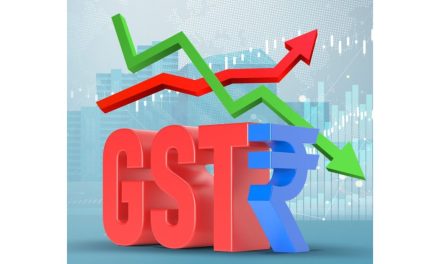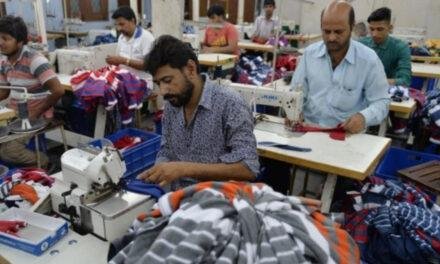Stating that declining exports of cotton textiles, particularly yarn and fabric, is a matter of deep concern, The Cotton Textiles Export Promotion Council (TEXPROCIL) has said that spinning and weaving sectors need urgent policy support. Extension of ROSCTL to cotton yarn and fabric, and 3 per cent Interest Equalisation to cotton yarn would be helpful.
Cotton textile exports continued their downward spiral declining by 24.5 per cent during April-July 2019. The provisional data for the first three weeks of August 2019 also shows that the 25 per cent decline in exports is continuing month on month basis.
“A commodity-wise analysis of the data shows that while garment and made-up exports have shown a positive growth, exports of cotton yarn / fabrics are showing a declining trend. A sharp and precipitous decline especially of cotton yarn during the last four months by about 35 per cent has led to a crisis situation in the spinning industry,” TEXPROCIL Chairman Dr. KV Srinivasan said in a statement.
In fact, the monthly exports of cotton yarn are at a 5-year low of 59-60 mn kg. Exports to major markets like China have declined by 50 per cent, while that to Bangladesh and South Korea have dropped by 38 per cent and 45 per cent, respectively.
“Garments and made-ups exports are recording positive growth mainly on account of the extension of the ROSCTL which rebates all types of Central and State taxes. This measure has not only ensured that taxes are not exported by the garment and made-up sector but also enabled them to regain competitiveness,” Srinivasan said.
He appealed to the government to also cover the exports of cotton yarn and fabrics in the ROSCTL schemes and refund the Central and State taxes. “These taxes are in the range of 6-7 per cent of the value and will go a long way in mitigating the serious situation in the spinning and weaving sector,” he added.
Many of the competing countries are gaining access in various export markets like China, South Korea, and Turkey mainly on account of the preferential access given to them by the importing countries leading to further erosion of India’s market share. While Vietnam’s cotton yarn exports to China increased by 17 per cent during April-July 2019, India’s share declined by 16 per cent during the same period.
In view of the sharp decline in exports, the spinning and weaving sector is in a very critical situation as many production units are shutting down and are in need of urgent policy support, Srinivasan said and requested the Government to also extend the 3 per cent Interest Equalisation scheme to cotton yarn. “These measures will help the cotton yarn sector and the spinning industry at large to minimise their losses and regain their competitiveness.”






















